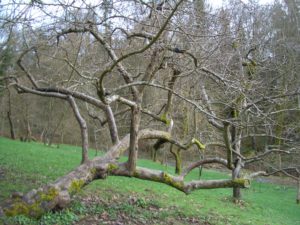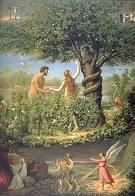A sermon preached at All Saints Church, San Francisco, on January 2, 2022, by Christopher L. Webber.
“After three days they found him in the temple, sitting among the teachers, listening to them and asking them questions.” Luke 2:46
Do you remember being twelve years old? I do. I remember quite a lot about it. It was a traumatic year. I nearly died. I came down with pneumonia at Thanksgiving. The doctor came – they did that in those days – and said, “He’s a very sick boy.” He said I should go to the hospital.
I remember lying in bed and thinking, “I don’t care whether I get better.” When you’re twelve years old, that’s really sick. So they took me to the hospital. My home town in upstate New York had a good little hospital a couple of miles away but they didn’t have an ambulance so they borrowed the hearse from the undertaker. I had my first ride in the back of a hearse at the age of 12.
So they put me in a hospital bed and gave me blood transfusions every day and sent me tons of get well cards. I remember how they stuck the cards up on the walls. (How did they do that before Scotch tape was invented?) I guess it was all they knew to do, but with the cards and the blood transfusions I got better after a month or so and they sent me home for Christmas. I don’t remember whether I got a round trip in the hearse, but I think I must have because I know I didn’t walk out of the hospital. I remember that I was back home when I felt well enough one day to get out of bed and I fell flat on the floor because I hadn’t used my legs in a month and nobody had thought to give me exercises to keep my muscles in shape.
In January I was back in school and I remember that on my first day back at school there was a geography test on things they’d worked on while I was gone, but I got 100 anyway. Well, I had a stamp collection so I knew about countries and geography. We were also in the middle of Word War II and we had National Geographic maps pinned to the wall behind the radio and we put pins in the maps
to mark the location of battles. Geography, government, politics – that interested me and I knew about it.
I had one more significant moment that year. It came when the teacher, Miss Edwards, decided to get us thinking about pronunciation, and each of us was asked to come to the front of the room and read a passage from a book and asked the class to vote who did it best. Not a big moment, but I really wanted to win, and I did, and I still remember winning that totally unimportant reading contest at age 12.
Now, I’m not bragging about these rather minor accomplishments. I wasn’t the smartest kid on the class – there were a couple of girls that got better marks than I did – but I’m pointing to the events that mattered to me and determined who I would be. I knew life was serious and that there’s a big world out there and I wanted to know about it and I wanted to use my voice somehow to make a difference in that world.
I cared about words and language and politics at the age of twelve, and it came together by the time I got to college in the idea of a career in government. I majored in public and international affairs in college and we studied local and national problems, and the more I saw of government close up the more I saw that I wasn’t likely to make much difference. I was likely to be just one more voice in a clamor of voices – but ministry, with the building of local communities, might fit better with using my voice and finding ways to make a difference at the local level.
So I went to seminary, not Washington. I still pay close attention to the political world. After I retired I even did some canvassing and poll watching and even gave same advice one day to the Junior Senator from Connecticut about using his voice – and made a difference. But I think I made the right choice, and I began to see indications of a way forward at the age of 12.
You have your own stories, I’m sure. God works in various ways to bring us to an understanding of who we are and how we can make a difference. Jesus at the age of twelve was going through that same process: the Bible tells us he was listening and asking questions, exploring, learning.
We know from the Bible that Joseph was a builder. I think the most common Bible translations say “carpenter,” but the Greek word is “tekton.” It’s related to our word archi-tect. It’s a bigger word than “carpenter.” “Builder” might be better. So Jesus would have been involved in building, and no wonder he was interested in the great Temple in Jerusalem and wondered how those massive stones got moved and placed. The foundation stones of that temple are still there. They weigh mostly 2 to 5 tons. The biggest is estimated to weigh 570 tons. It may be the biggest stone ever moved until modern days. And the stone of the temple was lined with cedar panels.
I think Jesus, or any builder, would have looked at the Temple in Jerusalem with special interest. I imagine Jesus wandering around, looking at the temple with more understanding and curiosity than the average tourist and looking for the maintenance people to ask about it, and then, with the religious leaders and teachers, asking why this and why that until he totally lost track of the time as a 12-year old can do. But Mary and Joseph came looking for him as parents do, and took him back to Nazareth. He would come back to Jerusalem, of course, but for the moment his life was in Nazareth and he could begin to think about what he might build, how he might use his talents, perhaps to build synagogues, perhaps to build a church.
There’s a legend that makes a lot of sense to me that a few years later Jesus traveled to England with his rich uncle, Joseph of Arimathea. We know there was extensive trade between England and the Eastern Mediterranean in those days because in Cornwall, in the west of England, there are tin mines, and sometimes traders, merchants, needed to go to see for themselves who they could work with,
and how best to get things done. Joseph of Arimathea, the legend goes, made that journey and took his promising young cousin along to see something of the larger world.
Maybe you know the hymn they still sing in England:
“And did those feet in ancient times
tread upon England’s mountains green
And was the holy Lamb of God
in England’s pleasant pastures seen?”
If you go to Cornwall today, to Glastonbury, they will show you the Glastonbury thorn, a hawthorn tree that descends from a tree said to have grown from the staff that Joseph carried and that he stuck in the ground and that rooted and that often blossoms twice a year, once in May, but then again at Christmas time.
Do you remember the parable Jesus told of a rich man who traveled to a far country? He may have lived that story himself with Joseph of Arimathea.
Be that as it may, I’m suggesting that today’s gospel is one small glimpse of a process that shaped who Jesus was just the way I was shaped by my experiences and the way you have been shaped by your experiences.
There are other stories about Jesus that look at his story differently and suggest that Jesus had special knowledge and powers from day one. There’s a story told in ancient documents of how, when Jesus was maybe six or eight years old, he was playing with some other children, and they had found some clay and made clay pigeons, and Jesus’ pigeons flew away, but the other children’s didn’t. But that story is not in the Bible.
There’s a simplistic notion of Jesus that eliminates the humanity and makes him unreal, un-human from the first, but that’s not what Christianity is all about. Christianity is about incarnation: God coming to earth as a real human being of flesh and blood. It’s hard to get our minds around this idea that we sum up in the word “incarnation:” God in human flesh. It’s not about God pretending to be human. It’s about God being human, being a real 12-year old, curious about the world and how it works.
There’s that wonderful Christmas hymn that gets sung in the service of lessons and carols: “Once in royal David’s city.” It tells us that “he came down from earth to heaven, who is God and Lord of all, and his shelter was a stable and his cradle was a stall; with the poor, the scorned, the lowly, lived on earth our Savior holy.” Yes, but when they last revised the hymnal, they changed the words of that hymn and destroyed it. Cecil Frances Alexander wrote:
“He was little, weak, and helpless,
tears and smiles like us he knew . . .”
But they rewrote that in the hymnal we now use and dropped that “weak and helpless” phrase and, indeed, where Mrs Alexander wrote “For that child so dear and gentle . . .” the new hymnal wants us to sing: “for that child who seemed so helpless . . .” “Seemed”? No, he was. He was truly, fully human and that means growing up in weakness. “Seemed” is a formal, declared heresy called “docetism,” so ruled at the Council of Chalcedon in 451. Don’t ever sing the 5th verse of hymn 102. No, no, no, “the word became flesh,” one with us, one of us, here with us, and when he was an infant, he was weak and helpless as infants are, and when he was twelve he had to explore and to learn and maybe be slightly rebellious as twelve-year-olds can be. And he may well have traveled to England and seen the world and heard sailors talk and matured and grown in wisdom and understanding so that after thirty years he had gained insights and must have begun to see how hard it would be to do what he was called to do, what he was sent to do, to bring together one fully human life with the fulness of the love and power of God.
Why after all are we here today except because we believe, we know, that the Almighty God lived among us, and knows our life from the inside, and knows our need from the inside, and did it for us, and died for us, and wants still to be involved in human life, in your life, and my life, and all life.
It’s a slow, uncertain process that shapes our lives, seeming to go in one direction, and then turning in another but learning along the way. It’s a process that brings us sometimes through great sickness and suffering to understand what others are suffering. When I visit someone in the hospital, I can say, “I know; I’ve been there.” God also can say to us: “I know; I’ve been there.”
It’s pretty wonderful isn’t it? But this, after all, is what Christianity is all about, and why Christmas is so widely celebrated even by people who have barely a clue abut its meaning. It’s why we bow or genuflect at the critical words of the creed: “For us and for our salvation he came down from heaven and was incarnate,” – and became truly human – “and was crucified, (and) died, and was buried.”
God became truly human. He grew up as we do, and was curious about things as we are, and died as we do. He knows who we are; he knows our needs; he knows human life from the inside, and therefore I come back again and again to what means more to me than any other verse or verses in the Bible – Hebrews 4:15-16 – as the very best summary I know of what it’s all about:
“For we do not have a high priest who is unable to sympathize with our weaknesses, but we have one who in every respect has been tested as we are, yet without sin. Let us therefore approach the throne of grace with boldness, so that we may receive mercy and find grace to help in time of need. ” (Hebrews 4:15-6)
Wherever we’re called to go, we can go there because he’s been here, and he understands. He knows what it’s like to be a twelve year old and curious about the world, knows what it’s like to get tired, knows what it’s like to suffer and die.
There’s a story about how Jesus later on walked on water. So what? So did Peter – till he lost his nerve. I value more the story in John’s gospel (4:6) of how Jesus was traveling through Samaria one day and got tired and had to sit down and rest. He was truly human, one with us, one of us, to whom we can turn as to a friend and not a stranger, not a mere visitor. He knows us; he’s been here. And we know him, and we can turn to him for help, and he gives us now voices to use and hands to employ to follow him and make a difference.

 And if the readings don’t refer specifically to the number of electoral votes in Pennsylvania
And if the readings don’t refer specifically to the number of electoral votes in Pennsylvania oint out that my four grandparents were born in four different countries on three different continents and it’s a true miracle that I’m here at all, let alone in this country and being lucky enough to grow up in a small country town where nobody ever locked their doors. But here I am, and my eyes tear up when we sing “America the beautiful.” I love this country – but that’s all the more reason to be aware of judgment.
oint out that my four grandparents were born in four different countries on three different continents and it’s a true miracle that I’m here at all, let alone in this country and being lucky enough to grow up in a small country town where nobody ever locked their doors. But here I am, and my eyes tear up when we sing “America the beautiful.” I love this country – but that’s all the more reason to be aware of judgment. immediately after buying it, I began clearing it and planting seeds and bulbs and bushes. Forgetting what Adam and Eve had learned, I also planted apple trees. Eventually we built a house there and eventually we retired there, and for twenty years I combined a rural ministry with the work of a gardener. Last week the new owner sent me a picture of daffodils that I had planted and he had picked.
immediately after buying it, I began clearing it and planting seeds and bulbs and bushes. Forgetting what Adam and Eve had learned, I also planted apple trees. Eventually we built a house there and eventually we retired there, and for twenty years I combined a rural ministry with the work of a gardener. Last week the new owner sent me a picture of daffodils that I had planted and he had picked. like the Book of Genesis. is all about beginnings. The first verse of the Book of Genesis tells us, “In the beginning, God created the heavens and the earth.” John’s Gospel begins, “In the beginning, was the Word and the Word was with God and the Word was God.”
like the Book of Genesis. is all about beginnings. The first verse of the Book of Genesis tells us, “In the beginning, God created the heavens and the earth.” John’s Gospel begins, “In the beginning, was the Word and the Word was with God and the Word was God.”

 Christopher L. Webber
Christopher L. Webber